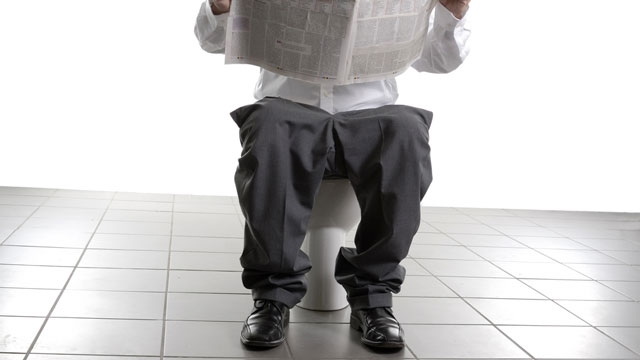By now, you’ve probably heard of the miracle that is the faecal transplant. When antibiotics become useless against infections by the nasty bacterium Clostrium difficile, a slurry of human faeces — full of “good” bacteria — piped into the gut can fix things up quick and cheap. The problem has always been a reliable source of poop.
Enter OpenBiome, where you can get human faeces by the bottle. The brainchild of two graduate students at Princeton and MIT, OpenBiome offers pre-screened and transplant-ready poop to clinicians. It is the first faecal bank of its kind. Science News dubbed it the “Brown Cross.”
Faecal transplants work by reintroducing a healthy balance of microbes in the gut. It is by far the most effective treatment out there for C. difficile, an infection that tends to strike in patients who have gone through multiple rounds of antibiotics wreaking havoc on their gut microbiota.
The idea of faecal transplants seem to run counter to our sterile, codified world of medicine. There’s no specialised equipment, so poop is processed in kitchen blenders. Where the poop comes from is another matter — and an awkward one. Family members are suggested, but clinics have variously arranged access to dedicated donors pre-screened for transmittable disease, including, in one case, a doctor himself.
But OpenBiome takes all the awkwardness out of it, and poop becomes just another medical product doctors can grab off the shelf. Clinics don’t need facilities (or blenders) to process the poop, either. According to The Chronicle of Higher Education, OpenBiome’s poop supply currently comes from just three donors, and it has shipped 109 specimens to 12 clinics as of late January. The nonprofit poop bank’s screening costs — a whooping $US3,000 per donor — are covered by a gift, so it only charges processing and shipping fees. Its poop is stored in the lab freezer of an MIT professor.
As we increasingly realise the role of the microbiota in just about every aspect of human health, the idea of banking healthy gut microbiota through poop doesn’t seem very outlandish. (Note: While there are many associations between differences in the gut microbiota and certain diseases such as obesity and asthma, there’s less evidence, at least for the time being, that a faecal transplant can cure diseases aside from C. difficile.) The “Brown Cross” could become part of our public health infrastructure.
What’s interesting to me is if faecal transplants can indeed be commodified. There’s already a pill of purified faecal bacteria to treat C. difficile, but it’s currently made fresh from stool on a patient-by-patient basis. Can gut bacteria be grow synthetically in labs, cutting out the whole faecal portion? One project, called RePOOPulate, is aiming to do just that. But when I reported on the poop pill for Nature, Dr Tom Moore said “It’ll be difficult to compete with the ready availability and very cheap costs of human poop.”
Fair enough, but faecal banks introduce another dimension to the equation. Although OpenBiome is a nonprofit, if faecal transplants really do take off — especially for more common diseases such as obesity — could we see donors looking to sell gut bacteria the way we can now sell hair, blood plasma, sperm or eggs? Even blood banks are part of a profitable blood market. Flushing money down the toilet could mean, well, just flushing the toilet. [Chronicle of Higher Education via Science News]
Picture: aldegone/Shutterstock
